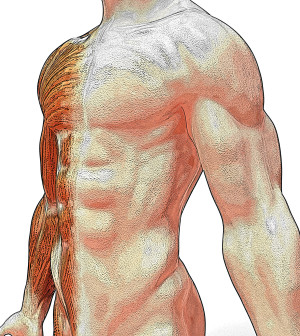- The Best Time of Day to Drink Bone Broth to Maximize Health Benefits
- 8 Ways to Increase Dopamine Naturally
- 7 Best Breads for Maintaining Stable Blood Sugar
- Gelatin vs. Collagen: Which is Best for Skin, Nails, and Joints?
- The Long-Term Effects of Daily Turmeric Supplements on Liver Health
- Could Your Grocery Store Meat Be Causing Recurring UTIs?
- Are You Making This Expensive Thermostat Error This Winter?
- Recognizing the Signs of Hypothyroidism
- 10 Strategies to Overcome Insomnia
- Could Artificial Sweeteners Be Aging the Brain Faster?
Good Moods Infectious Among Teens


A good mood is infectious among teens, but depression is not, a new study suggests.
Researchers looked at more than 2,000 American high school students to see how they influenced each others’ moods. They found that a positive mood seems to spread through groups of teens, but having depressed friends doesn’t increase a teen’s risk of depression.
In fact, having plenty of friends in a good mood can halve the chances that a teen will develop depression over six to 12 months. Having a lot of happy friends can also double the likelihood of recovering from depression over the same time period, the researchers found.
However, the study could only show an association between happy friends and a lower risk of depression or a faster recovery from depression. It cannot prove a cause-and-effect relationship between these factors.
The study was published Aug. 18 in the journal Proceedings of the Royal Society B.
“We know social factors, for example living alone or having experienced abuse in childhood, influences whether someone becomes depressed. We also know that social support is important for recovery from depression, for example having people to talk to,” study author Thomas House, a senior lecturer in applied mathematics at the University of Manchester in the U.K., said in a university news release.
“Our study is slightly different as it looks at the effect of being friends with people on whether you are likely to develop or recover from being depressed,” he added.
These findings suggest that promoting friendships, through such activities as social clubs, might help guard against depression, House noted.
“This was a big effect that we have seen here. It could be that having a stronger social network is an effective way to treat depression. More work needs to be done but it may that we could significantly reduce the burden of depression through cheap, low-risk social interventions,” House concluded.
More information
The American Academy of Family Physicians has more about teens’ mental health.
Source: HealthDay
Copyright © 2026 HealthDay. All rights reserved.










